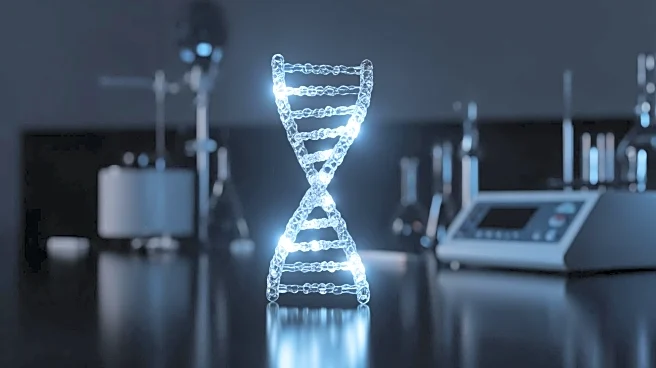What's Happening?
Mary E. Brunkow, a scientist based in Seattle, has been awarded the Nobel Prize in Medicine for her groundbreaking work on peripheral immune tolerance. This discovery is crucial in understanding how the immune system differentiates between harmful germs and the body's own cells, preventing autoimmune diseases. Brunkow was one of three scientists recognized for their contributions to this field. The announcement was made on October 6, 2025, and Brunkow was informed by her husband, Ross Colquhoun, who woke her up with the news. The award highlights the importance of her research in advancing medical science and improving treatments for immune-related conditions.
Why It's Important?
The Nobel Prize awarded to Mary E. Brunkow underscores the significance of her research in the field of immunology. Her work on peripheral immune tolerance has the potential to revolutionize the treatment of autoimmune diseases, which affect millions of people worldwide. By understanding how the immune system can be trained to avoid attacking the body's own cells, new therapies can be developed to manage or even cure conditions like rheumatoid arthritis, lupus, and type 1 diabetes. This recognition not only honors Brunkow's contributions but also brings attention to the ongoing need for research in immunology, which could lead to significant advancements in healthcare and improve the quality of life for many patients.
What's Next?
Following the Nobel Prize announcement, Mary E. Brunkow is expected to continue her research in immunology, potentially leading to new collaborations and funding opportunities. The recognition may also inspire further studies in peripheral immune tolerance, encouraging other scientists to explore this promising area of research. As the medical community celebrates this achievement, there may be increased interest in developing clinical applications based on Brunkow's findings, which could result in new treatments for autoimmune diseases. Additionally, the award may influence public policy and funding priorities, emphasizing the importance of supporting scientific research that addresses critical health challenges.
Beyond the Headlines
Mary E. Brunkow's Nobel Prize win highlights the ethical and cultural dimensions of scientific research. Her work not only advances medical knowledge but also raises questions about the accessibility and affordability of new treatments for autoimmune diseases. As research progresses, there will be discussions about ensuring that breakthroughs in immunology benefit all patients, regardless of socioeconomic status. Furthermore, Brunkow's achievement may inspire young scientists, particularly women, to pursue careers in STEM fields, contributing to greater diversity and innovation in scientific research.











